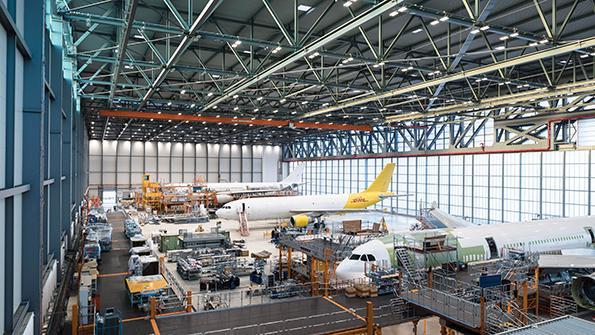How E-Commerce Is Fueling Air Cargo Growth

This is an abbreviated version of the AW&ST article - E-Commerce Fuels Air Cargo Growth
While the aviation industry is still struggling with the fallout from the COVID-19 pandemic, the air cargo sector is benefiting from strong demand, in particular from the e-commerce segment.
An online shopping boom—already underway before the pandemic—is still fueling demand for air cargo. Operators are taking steps to ensure they can make the most of that demand, even as they face the ongoing obstacle of limited capacity. Many passenger flights (and therefore much belly capacity) are still out of action.
Read the full article to learn more about the 25.7% surge in 2020 to $4.213 trillion
Highlighting the importance of the e-commerce sector, DHL recently launched a new brand campaign aiming to highlight its expertise in that segment. “E-commerce trade has become increasingly established and an important area of economic growth over the last decades,” DHL says. “This development has been greatly amplified by the pandemic and companies of all shapes and sizes need to be able to cope with the ever-growing digitally driven demand.” The company notes that its logistics processes would help customers “keep up with the clicks.”
Deutsche Post DHL Group released preliminary second-quarter results July 7 that show an increase in earnings and also raise its earnings outlook. “The second quarter proved once again that global trade volume continues to recover, and the e-commerce boom is sustainable—and we benefit strongly from both,” Frank Appel, CEO of the group, said.
Read more about Lufthansa Cargo and its commitment to making the most of the e-commerce boom
Lufthansa Cargo itself is adapting to growth through fleet adjustments. Citing growth in cross-border e-commerce shipments at around 20% per year for the next five years, the airline said July 7 that it plans to operate two Airbus A321 aircraft permanently converted into freighters to allow for the use of standardized cargo pallets on the main deck starting in early 2022. The two aircraft will be operated on Lufthansa Cargo’s behalf by Lufthansa CityLine and will be based in Frankfurt.
Dresden, Germany-based Airbus conversion specialist Elbe Flugzeug-werke (EFW), which counts DHL among its customers for the Airbus A330P2F, is experiencing high demand for conversion slots, driven in large part by e-commerce. That demand is outstripping supply capacity.
“Even before COVID, the growth outlook for air cargo was 4-5%, and a big part of that was driven by e-commerce,” says Gilbert Birke, vice president of Airbus freighter conversion sales at EFW. “Due to COVID, this has been strengthened, and even if COVID is over, people will continue to buy online.”
Find out why the A320P2F and A321P2F programs in particular are likely to be popular with operators
Boeing, for its part, expects a 60% increase in the world freighter fleet over the next 20 years, driven by the rise in e-commerce demand for consumer goods as well as general freight needs.
The aircraft-maker announced a firm order for 12 additional 737-800 Boeing Converted Freighters (BCF) from lessor BBAM Aircraft Leasing & Management July 12.
Read the full article to discover Boeing's forecast for freighter conversions
Data for June released by the International Air Transport Association (IATA) show that global air cargo demand measured in cargo ton kilometers (CTK) continued its strong growth trend with a 9.9% improvement on pre-COVID-19 performance in June 2019. Air cargo growth reached 8% in the first half of the year, its strongest first-half performance since 2017, when the industry grew by 10.2% year--over-year.
Overall capacity, measured in available cargo ton kilometers (ACTK), remained constrained at 10.8% below June 2019 levels due to the ongoing grounding of passenger aircraft. Belly capacity was down 38.9% compared with June 2019 levels, partially offset by a 29.7% increase in dedicated freighter capacity, IATA says.
Read the full AW&ST article by Helen Massy-Beresford - E-Commerce Fuels Air Cargo Growth




